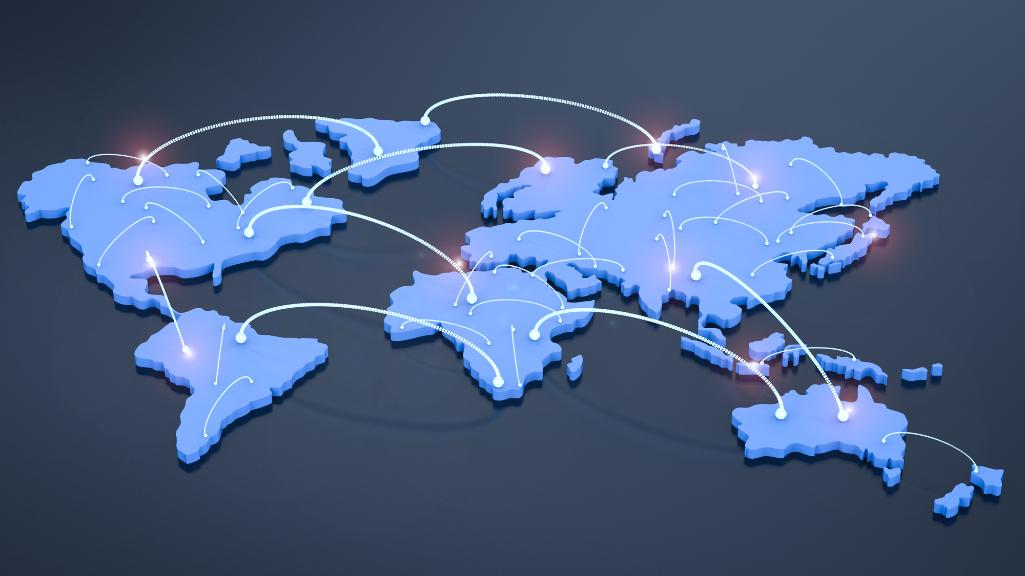International Telecommunication Union (ITU): Bridging the Global Digital Divide
James Bond
. 2 min read
The International Telecommunication Union (ITU), a specialized agency of the United Nations (UN), plays a crucial role in fostering international cooperation and standardization in the field of information and communication technologies (ICTs). Established in 1865, it is one of the oldest and most influential international organizations, focused on promoting global connectivity, accessibility, and innovation in the rapidly evolving world of telecommunications and digital technologies. As technology advances, the ITU continually adapts to meet the changing needs of the digital era, ensuring that platforms like omegle chat and other emerging communication services align with their vision of an inclusive and connected global society.

Mission and Objectives of ITU
The ITU's primary mission is to facilitate the development and coordination of global telecommunications networks and services, with a vision of creating an inclusive, information-rich, and knowledge-based global society. The key objectives of the ITU include:
- Standardization: ITU develops technical standards and guidelines to ensure seamless interoperability and compatibility between different telecommunication systems and services worldwide.
- Spectrum Management: ITU oversees the allocation and efficient use of the radio-frequency spectrum and satellite orbits, ensuring that the limited resources are distributed fairly and used optimally.
- Bridging the Digital Divide: ITU is dedicated to reducing the global digital divide by promoting affordable and accessible ICT infrastructure and services in underserved and remote areas, thus enabling social and economic development for all.
- Emergency Telecommunications: ITU plays a critical role in disaster preparedness and response by coordinating emergency telecommunications services during humanitarian crises and natural disasters.
Structure and Membership of ITU
ITU is governed by three main bodies:
- Plenipotentiary Conference: Held every four years, this is the highest decision-making body of the ITU. It establishes the general policies of the organization, elects the Secretary-General and the senior management team, and sets the financial and strategic direction of the ITU.
- ITU Council: Composed of member states elected by the Plenipotentiary Conference, the Council meets annually to manage the ITU's activities, programs, and budget between Plenipotentiary Conferences.
- Radiocommunication Sector (ITU-R), Telecommunication Standardization Sector (ITU-T), and Telecommunication Development Sector (ITU-D): These three sectors focus on different aspects of ICTs and work on specific technical and developmental issues. ITU membership is open to both UN member states and private sector entities, including telecommunication companies and organizations. As of my last update in September 2021, the ITU had 193 member states and numerous private sector members.
Achievements and Initiatives of ITU
Over the years, ITU has achieved several milestones that have significantly impacted the global ICT landscape. Some noteworthy achievements and initiatives include:
- Development of Technical Standards: ITU's work on defining technical standards has been fundamental to the development and widespread adoption of technologies like modems, video codecs, and mobile communication standards (e.g., 3G, 4G, and 5G).
- World Telecommunication Development Conference (WTDC): Held every four years, the WTDC brings together policymakers, regulators, and industry stakeholders to discuss and devise strategies for connecting the unconnected and promoting digital inclusion.
- Connect 2030 Agenda: In line with the United Nations' Sustainable Development Goals (SDGs), ITU has launched the Connect 2030 Agenda, which aims to ensure that all individuals and communities have access to affordable and reliable ICTs by the year 2030.
- Broadband Commission for Sustainable Development: ITU co-founded this high-level advocacy body with the United Nations Educational, Scientific and Cultural Organization (UNESCO). The commission focuses on leveraging broadband technologies to achieve development goals, particularly in education, healthcare, and economic growth.
- Global Cybersecurity Agenda: Recognizing the growing importance of cybersecurity in the digital age, ITU leads efforts to strengthen global cybersecurity capabilities through its Global Cybersecurity Agenda (GCA) initiative.
Conclusion
The International Telecommunication Union (ITU) continues to play a pivotal role in shaping the world's digital future. By fostering international cooperation, standardization, and promoting digital inclusion, the ITU strives to bridge the global digital divide and create a more equitable and connected world for all. As technology continues to evolve, the ITU's role remains vital in ensuring that the benefits of ICTs are accessible to every corner of the globe.
More Stories from
Unleashing the Power of Software Testing Metrics: A Guide to Effective Measurement and Decision-Making
This article emphasizes the importance of software testing metrics and provides guidance on selecting the most relevant metrics for a project.
Debunking Common Myths about Mobile Phone Batteries
This article highlights common mistakes people make with their mobile phone batteries.
Illuminating the Future: A Comprehensive Guide to Light Emitting Diodes (LEDs)
Discover the history, working principles, and diverse applications of LEDs, from lighting and displays to automotive advancements.
The World Wide Web: Connecting Humanity Across Time and Space
From its inception by Sir Tim Berners-Lee to its exponential growth, learn how the Web revolutionized communication, commerce, and society at large.
Introduction to the Theory of Automata and Formal Languages
Learn how automata models and grammars shape programming languages, artificial intelligence, and more.
.png?height=40)









.png?width=40&aspect_ratio=1:1)
